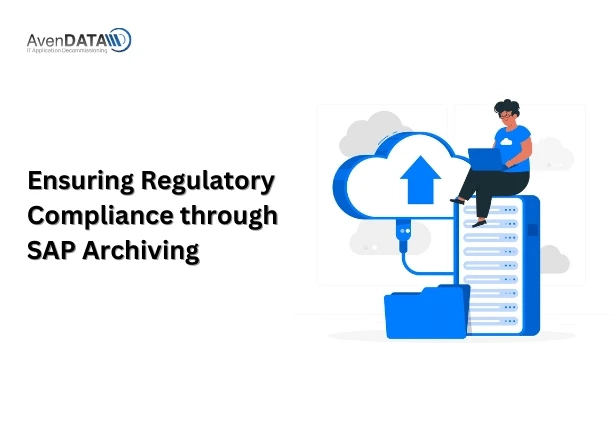Introduction:
In today’s regulatory landscape, organizations face increasing pressure to comply with various industry-specific regulations, data privacy laws, and retention requirements. SAP archiving provides a reliable solution for organizations to effectively manage their data while ensuring regulatory compliance. In this blog post, we will explore the importance of SAP archiving in meeting regulatory requirements and highlight best practices to ensure compliance throughout the archiving process.
1. Understanding Regulatory Compliance:
Begin by gaining a comprehensive understanding of the regulatory landscape relevant to your industry. Identify the specific regulations, data protection laws, and retention requirements that impact your organization. This knowledge forms the foundation for developing an effective SAP archiving strategy.
2. Data Classification and Retention Policies:
Categorize your data based on its sensitivity, importance, and legal requirements. Develop data retention policies aligned with industry regulations and business needs. Classify data into different categories, such as critical, sensitive, and non-sensitive, to determine appropriate archiving periods and retention schedules.
3. Defining Archiving Objects:
Identify the SAP archiving objects that are relevant to your organization. This could include transactional data, documents, logs, and other relevant information. Define clear criteria for archiving, such as date ranges, document types, or specific business processes, to ensure consistency and compliance.
4. Data Privacy and Security:
Data privacy is a critical aspect of regulatory compliance. Implement robust security measures to protect archived data from unauthorized access. Utilize encryption, access controls, and user management to ensure that only authorized personnel can access and retrieve sensitive information.
5. Audit Trail and Data Integrity:
Maintain an audit trail for all archiving activities to demonstrate compliance with regulatory requirements. Implement mechanisms to track and monitor data changes, access logs, and user actions. Regularly validate the integrity and authenticity of archived data to ensure its reliability and credibility.
6. Legal Hold and Data Preservation:
In certain situations, legal holds or litigation may require organizations to preserve specific data beyond regular retention periods. Implement processes to identify and isolate data subject to legal holds, ensuring its protection and availability when needed.
7. Periodic Compliance Audits:
Conduct regular compliance audits to assess the effectiveness of your SAP archiving strategy. Verify that data retention and archiving practices align with the defined policies and regulatory requirements. Address any identified gaps or issues promptly to maintain ongoing compliance.
Conclusion:
Effective SAP archiving is crucial for organizations to meet regulatory compliance requirements. By understanding the regulatory landscape, implementing proper data classification and retention policies, and ensuring data privacy and security, organizations can leverage SAP archiving to comply with industry-specific regulations. Regular audits and continuous monitoring help maintain compliance and mitigate potential risks. Implementing a robust SAP archiving strategy ensures regulatory compliance, data integrity, and enables organizations to confidently manage their data in accordance with legal and regulatory obligations.




